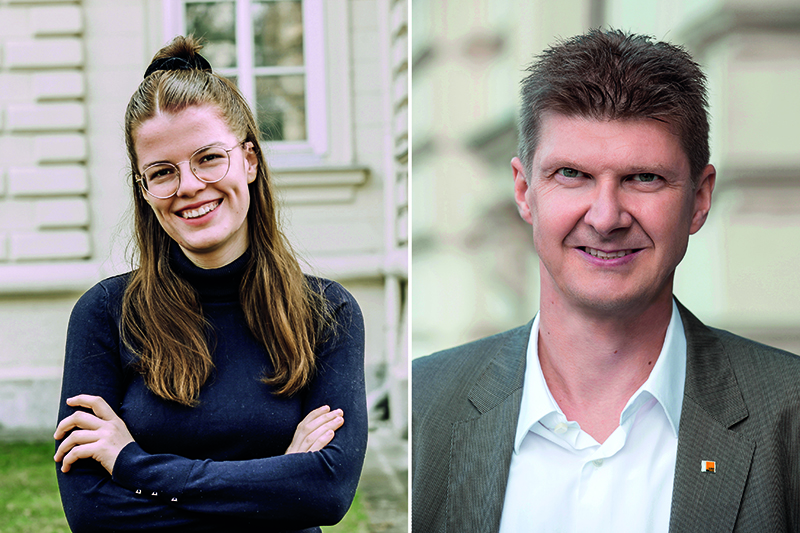Following a challenging 2020, Arqus – the European University Alliance, comprising the University of Graz and six partners – has some ambitious plans for 2021. Over the next few weeks, the people at the University of Graz who are involved in the Arqus alliance will be reporting on what it has achieved so far and what objectives it has set itself for this year.
Today: Action Line 7: “Engaged European Citizens”
Contacts at the University of Graz: Michael Kopp and Nadine Linschinger (Center for Digital Teaching and Learning)
Students from all Arqus partner universities exchanging ideas on a topic, thereby adopting a European perspective and taking the knowledge acquired back to their own community: that is the idea behind Action Line 7. What has Arqus achieved in this regard in its first year?
MK: The first year was an intensive preparation phase for us, in which we conceptualised, planned and – partly due to the COVID-19 pandemic – went back to the drawing board again. In the end, however, it was possible to get at least some work packages on the right track. This includes, above all, important media-didactic concepts, as well as preparation for the first Winter School which will be held in February 2021.
NL: One challenge was – and is – that expertise in certain fields is not of the same standard at all the universities. When it comes to data protection or the use of legally impeccable digital tools, for example, we are very well equipped here at Graz. However, this issue is handled differently at other universities. Finding a common denominator that is workable for us all has kept us as well as the management of the Action Line in Bergen busy for a while. For this, the formats we have developed at the University of Graz are now well established.
What specifically is planned for this year?
NL: Our first major event is still in the planning phase: at the end of February 2021, the interdisciplinary Winter School ”Rethinking Climate Risk in European Cities 2021” will be held in a hybrid format. Master’s students with experience in the field of climate change receive four credit points for this five-day workshop. The University of Graz will organise four online lectures, as well as a panel discussion on “Governing climate risk”. We also provide the learning management system Moodle, of which we are in charge both technically and didactically. In this way, we guarantee that teachers and students can build on a high-quality (media) didactic concept.
MK: This also applies to the ”Challenge-based Learning Programme” in the summer semester, where students from the Winter School can earn an additional 10 credit points in the course ”Societal Responses to Climate Risk”. Crucial for both formats is the content-related and scientific support from the "Climate Change Graz” Field of Excellence. Alfred Posch and Harald Stelzer in particular deserve a special thanks for their tireless commitment.
Arqus’s first year was dominated by the Covid-19 pandemic. Looking back, however, is there anything positive to be taken away from 2020?
NL: As everything took place online, it was very challenging for me as a media didactician, however I also had a lot of fun. I put on a lot of counselling sessions but also received input from our partners at the same time.
MK: Coordination on the part of the Action Line management in Bergen is not always optimal, yet it has improved noticeably in recent months. The cooperation of all those involved at the University of Graz has been particularly positive. In the second Arqus year, we can also benefit from the experience gained so far, so that we can look ahead optimistically, especially towards the second round of the “Challenge-based Learning Programme”, which will deal with the topic of “diversity”.
